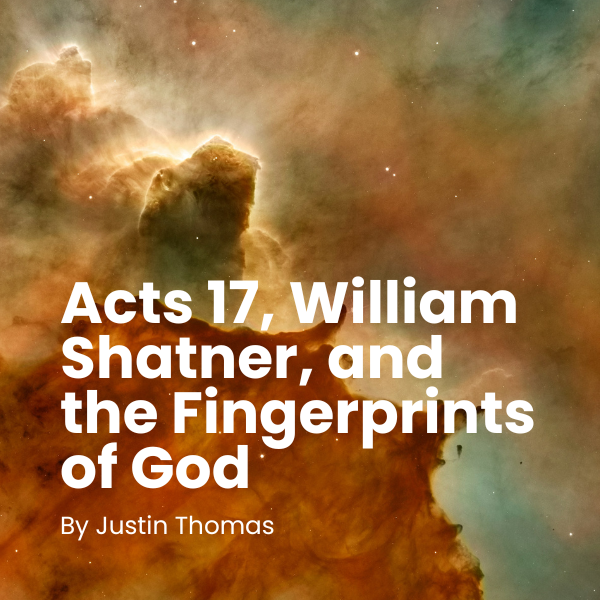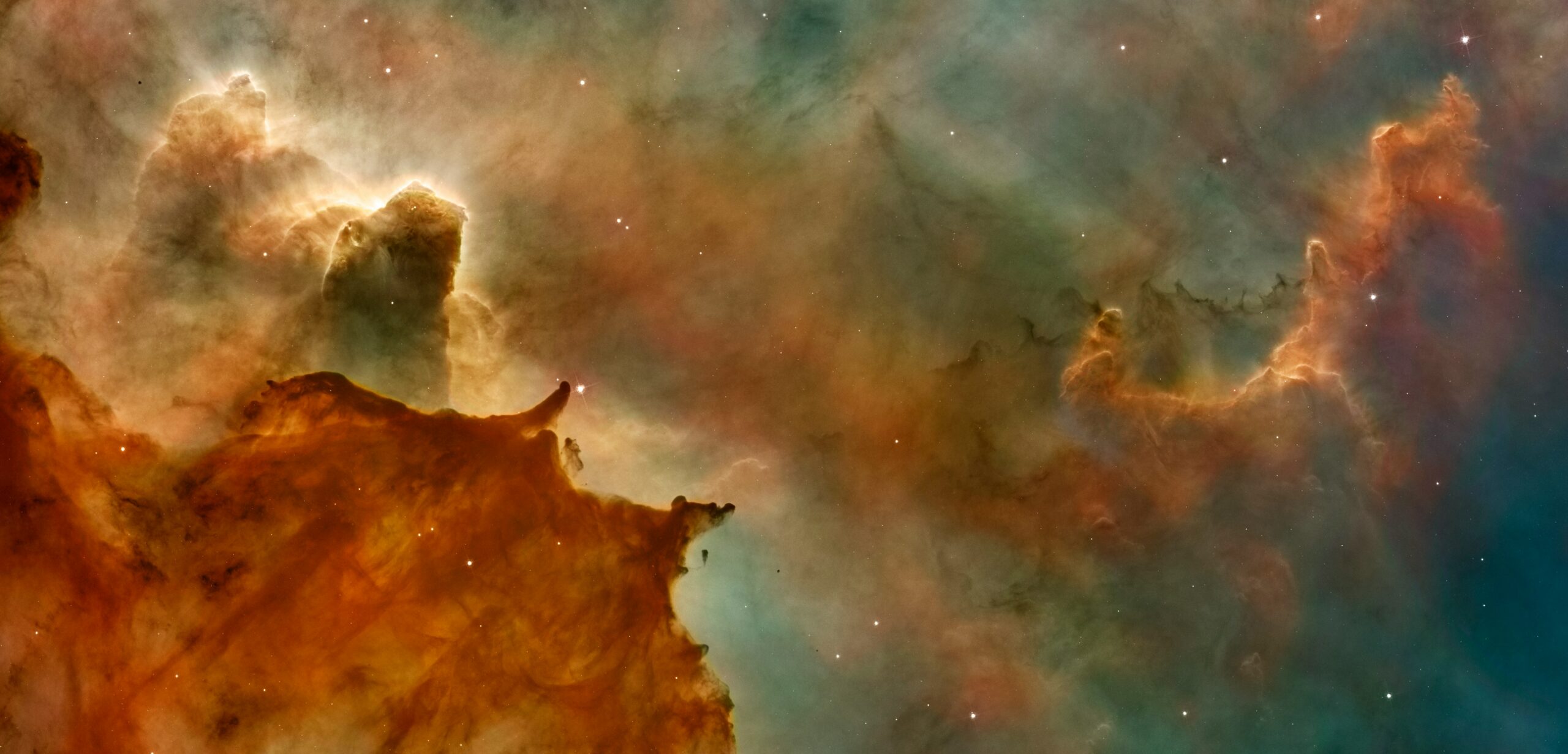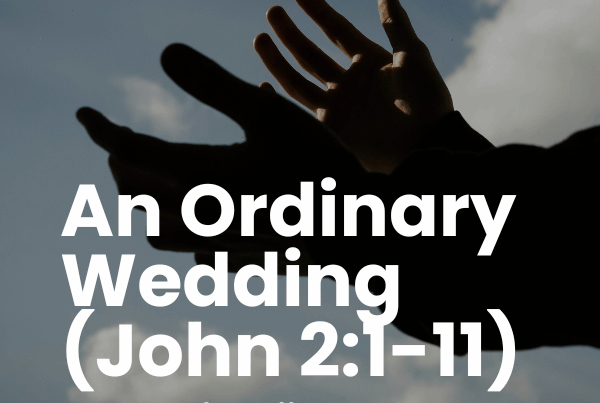
When Paul addresses the crowd gathered at the Areopagus in Acts 17, he opens his appeal with a reference to a local altar to the unknown God and quotes their poets in his appeal for Christianity. His speech is undergirded by two critical assumptions: all can see signs of God’s existence, and Christians should recognize and utilize cultural opportunities to proclaim the gospel.
This cultural appeal can sometimes make Christians uncomfortable because they are concerned about the false, which mingles with the truth. But Paul assumes the world’s ignorance: Their limited knowledge is a starting place, incomplete and incorrect, but enough to warrant hearing what Paul has to say. We should be listening to when artists get it right: when they see that God has not left himself without a witness (Acts 14:17).
So what are our culture’s poets saying? I want to cite just one recent example. William Shatner, primarily known for his role as Captain Kirk in the original Star Trek, has also engaged in spoken word poetry for decades. This spring, in collaboration with musician Ben Folds and the National Symphony Orchestra, Shatner performed “The Meaning,” chronicling his experience shooting a recent nature documentary in the context of his lifelong wrestling with the meaning of life. As the poem progresses, after being dissatisfied with science and mysticism, he has an epiphany to which Paul (and we) should add our amen. It’s worth listening to his performance, as the delivery is some of the best of his career, but here are the concluding stanzas.
I was searching for the meaning
A proof of greater plans
Some elevated vision
Beyond the reach of man
Searching for the meaning
Before it was too late
To save myself or anyone
From cruel or random fate
On the final morning
I still had found no peace
So I packed up my belongings
To head back down the crease
But by a twist of fate
It landed in my hand
Falling off my backpack
Some simple grains of sand
It struck me dumb with wonder
Like sun after the rain
I saw the entire universe
In each and every grain
Yes each grain was a diamond
Unique, precious, and rare
And countless years and miracles
Conspired to bring them there
The wholeness of the planet
Like a flash it came
We all were grains of sand
All different, yet the same
Yes every human soul
Every atom that persists
Bound up in the journey
The journey to exist
There was no separation
There were no prison walls
The meaning of the meaning
Lived inside it all
I didn’t need a mantra
Or set of magic prayers
I just needed open eyes
To notice what was there
Holy are the mountains
Holy is the sand
Holy are the human beings
Trying to understand
Holy are the whispers
Holy are the screams
Holy are the nightmares
Holy are the dreams
Holy is the seedcake
Holy is the rot
Holy are the written words
Holy those forgot
Holy is the order
Holy is the mess
Holy are the modest ones
Holy the undressed
Holy is the garbage
Holy is the gold
Holy are the infants
Holy are the old
Holy is the poverty
Holy is the wealth
Holy are the unions
Holy is the self
Holy are the unions
Holy is the self
Holy are the unions
Holy is the self
William Shatner may not know the Holy One who created and sustains our world (he often identifies as spiritual but not religious), but he sees the holy fingerprints across every atom of the universe. We could critique his semi-pantheistic conclusions, but his use of the word holy provides an opportunity for dialogue: maybe that sacredness has a reason for being, maybe they display the invisible attributes of the Creator God (Rom 1:20). We know what Paul would do. He would proclaim to Shatner and our world, “What therefore you worship as unknown, this I proclaim to you” ( Acts 17:23).







